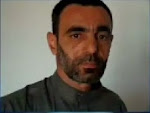For Immediate Release
Saudi Arabia: Witchcraft and Sorcery Cases on the Rise
Cancel Death Sentences for “Witchcraft”
(Kuwait City, November 24, 2009) – The cassation court in Mecca should overturn the death sentence imposed on Ali Sabat by a lower court in Medina on November 9 for practicing witchcraft, Human Rights Watch said today. Human Rights Watch called on the Saudi government to cease its increasing use of charges of 'witchcraft' which remains vaguely defined and arbitrarily used.
Ali Sibat’s death sentence apparently resulted from advice and predictions he gave on Lebanese television. According to Saudi media, in addition to Sibat, Saudi religious police have arrested at least two others for witchcraft in the past month alone.
“Saudi courts are sanctioning a literal witch hunt by the religious police,” said Sarah Leah Whitson, Middle East and North Africa director at Human Rights Watch. “The crime of 'witchcraft' is being used against all sorts of behavior, with the deadly threat of state-sanctioned executions.”
Religious police arrested Ali Sibat in his hotel room in Medina on May 7, 2008 where he was on pilgrimage before returning to his native Lebanon. Before his arrest, Sibat frequently gave advice on general life questions and predictions about the future on the Lebanese satellite television station Sheherazade, according to the Lebanese newspaper Al-Akhbar and the French newspaper Le Monde. These appearances are said to be the only evidence against Sibat.
Saudi newspaper Al-Madina reported on November 15 that a lower court in Jeddah started the trial of a Saudi man arrested by the religious police and said to have smuggled a book of witchcraft into the kingdom. On October 19, Saudi newspaper Okaz reported that the religious police in Ta’if had arrested for “sorcery” and “charlatanry” an Asian man who was accused of using supernatural powers to solve marital disputes and induce falling in love.
In March 2008, Human Rights Watch asked a high-ranking official in the Ministry of Justice to clarify the definition of the crime of witchcraft in Saudi Arabia and the evidence necessary for a court to prove such a crime. The official confirmed that no legal definition exists and could not clarify what evidence has probative value in witchcraft trials. Saudi Arabia has no penal code and in almost all cases gives judges the discretion to define acts they deem criminal and to set attendant punishments.
In February 2008, Human Rights Watch protested the 2006 “discretionary” conviction and sentencing to death for witchcraft of Fawza Falih, a Saudi citizen. Minister of Justice Abdullah Al al-Shaikh responded that Human Rights Watch had a preconceived Western notion of shari’a, but did not answer the organization’s questions about Falih’s arbitrary arrest, coerced confession, unfair trial, and wrongful conviction. She remains on death row in Quraiyat prison, close to the border with Jordan, and is reportedly in bad health.
Okaz on November 10 reported that the Medina court had also issued the verdict for Sibat on a “discretionary” basis. Both Sibat and the Saudi man accused of smuggling books of witchcraft reportedly confessed to their “crimes.” Sibat had no lawyer at trial and only confessed because interrogators told him he could go home to Lebanon if he did, according to May al-Khansa, his lawyer in Lebanon.
In another case, a Jeddah criminal court on October 8, 2006 convicted Eritrean national Muhammad Burhan for “charlatanry,” based on a leather-bound personal phone booklet belonging to Burhan with writings in the Tigrinya alphabet used in Eritrea. Prosecutors classified the booklet as a “talisman” and the court accepted that as evidence, sentencing him to 20 months in prison and 300 lashes. No further evidence for the charge was introduced at trial. Burhan has since been deported, after serving more than double the time in prison to which the court had sentenced him.
On November 2, 2007, Saudi Arabia executed Mustafa Ibrahim for sorcery in Riyadh. Ibrahim, an Egyptian working as a pharmacist in the northern town of `Ar’ar, was found guilty of having tried “through sorcery” to separate a married couple, according to a Ministry of Interior statement.
“Saudi judges have harshly punished confessed ‘witches’ for what at worst appears to be fraud, but may well be harmless acts,” Whitson said. “Saudi judges should not have the power to end lives of persons at all, let alone those who have not physically harmed others.”
In 2007, Saudi Arabia passed two laws restructuring judicial institutions, and in 2009 began implementing what it said was a comprehensive judicial reform under Minister of Justice Muhammad al-‘Isa, who was appointed in February 2009. However, Saudi Arabia has still not codified its criminal laws, and efforts to update the criminal procedure law, which lacks guarantees against forced confessions such as the right not to incriminate oneself, have not yet come to fruition.
Human Rights Watch opposes the use of the death penalty in all circumstances, due to its inherently cruel nature. International standards, for example as expressed in resolution 1984/50 of the UN Economic and Social Council, require all states that retain the death penalty to limit its imposition to the “most serious” crimes.
Saudi judges should overturn witchcraft convictions and free those arrested or convicted for witchcraft-related crimes, Human Rights Watch said. King Abdullah should urgently order the codification of Saudi criminal laws and ensure it comports with international human rights standards.
For more information, see the report, “Precarious Justice”:
http://www.hrw.org/en/reports/2008/03/24/precarious-justice-0
Releases:
Letter to Saudi Minister of Justice Muhammad al-`Isa on Wrongful Detention of Eritrean National:
http://www.hrw.org/en/news/2009/05/04/letter-saudi-minister-justice-muhammad-al-isa-wrongful-detention-eritrean-national
Letter to HRH King Abdullah bin Abd al-’Aziz Al Saud on "Witchcraft" Case:
http://www.hrw.org/en/news/2008/02/12/letter-hrh-king-abdullah-bin-abd-al-aziz-al-saud-witchcraft-case
For more information, please contact:
In Kuwait, Christoph Wilcke (English, Arabic, German): +965 99-708-611
In New York, Sarah Leah Whitson (English): +1-718-362-0172
Tuesday, November 24, 2009
Subscribe to:
Post Comments (Atom)

No comments:
Post a Comment